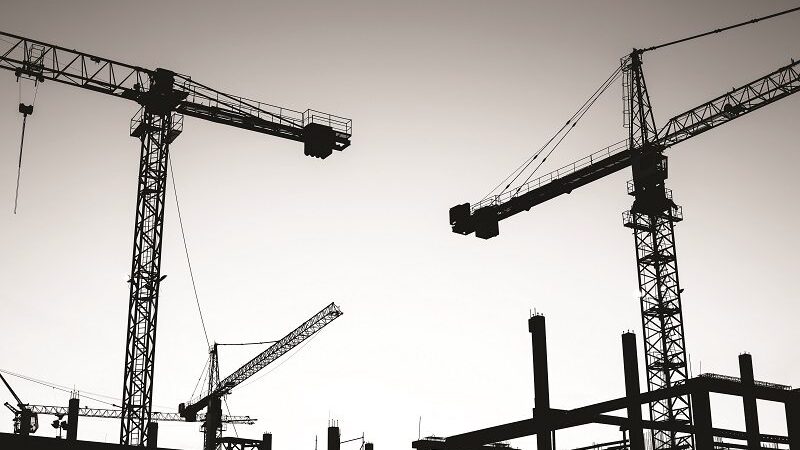Cranes may (rightly) be considered a blot on the cityscape, but they are a key indicator of the health of the wider economy. London’s skyline currently boasts an abundance of them but, with the UK Construction PMI for May signalling the weakest rise in residential work for two years, how long will that continue to be the case?
Housebuilders have delivered strong performances over the past year but the industry continues to be dogged by supply chain issues and rising costs. With recession fears on the rise, there are concerns the construction sector is about to experience a major slowdown.
However, Scott McKenzie, fund manager at Amati Global Investors, thinks those worries are premature.
“We are in the odd situation where the economy is under extreme pressure but property price inflation is still going up. The rise in house price inflation we have seen is not sustainable and I think it will go to zero as we move into next year.”
However, he does not predict a collapse in the housing market.
“There is still a big housing shortage and that need is not going to go away. There will be a cooling in the sector but for a collapse there would need to be much higher interest rates than we see today and much higher unemployment.”
Interest rate hikes
McKenzie does not see interest rates being north of 5% nor, given record job vacancies, does he envisage unemployment rates rising significantly.
While he questions whether the UK government’s target of 300,000 new homes a year by the mid-2020s is in any way realistic, he does see more partnership, social housing and build-to-rent projects coming on-stream.
With this in mind, he has invested in stocks including Vistry Group and Grainger.
Housebuilders have, by and large, had a strong 2021/22 and house price inflation has managed to comfortably cover the jump in building material costs. McKenzie expects profits to peak this year and for 2023 to be very flat.
Outside of housebuilders, McKenzie believes the outlook for civil engineering contractors and building materials companies looks relatively stable with major, long-term infrastructure projects offering support.
“In both the US and Europe infrastructure work is at decent levels. With HS2, Crossrail and Hinkley Point there is a lot of infrastructure spending coming up so for contractors and building materials providers there is quite a bright story to tell.”
George Godber, fund manager at Polar Capital, agrees that what he calls ‘Goliath’ projects such as HS2 and, particularly, Hinkley Point will be huge boosts for both contractors and suppliers.
He also points to an improving outlook for development of office space after a post-Brexit slowdown, with companies keen to be based in carbon-friendly and energy efficient premises.
“A lot of companies have had refurbs to help encourage staff back to the office. There is also strong demand for new warehousing premises for online retailers.”
Astute purchasing of land
Housebuilders are in a robust state right now and Godber believes this makes a big difference.
“Obviously if there is a severe recession then the housing market will come down considerably. But, at the moment, that is not the scenario. Back in 2007/08, housebuilders had built up masses of debt but not now, they have bought land much more astutely, have strong balance sheets and are far better placed.”
Godber believes the ‘supply/demand’ equation remains supportive for housebuilders – at least for now.
“Yes, mortgage rates have gone up but the squeeze on the consumer is largely being felt at the bottom. Most of those in the typical homebuying bracket are in a better position. We are simply not building enough houses and new build that is a lot more energy efficient is really important to people.”
“The likes of Bellway didn’t build for three months because of Covid and are only recently back to full output, so there is a backlog there.”
Another key driver for the market, according to Godber, is the work-from-home culture with people increasingly wanting study/workspace areas and larger gardens. As for the impact of rising unemployment, like McKenzie, Godber does not foresee major issues here.
“How secure you feel in your job is a driver of consumer confidence and right now most people feel safe in their job.”
He adds: “Housebuilders are seeing consistent trends in that people are still looking to move.”
Godber agrees that rising house prices have helped housebuilders deal with rising supplier costs and that prices may now begin to level off as the market cools a little. However, he believes supply side pressures are beginning to ease which will prove beneficial to housebuilders.
The market may have been over-stating the bad news for construction stocks in general, is Godber’s take on things. “My gut feeling is that the world is tough right now, but it might not be as bad as feared.”
This view is backed by Sam Cullen analyst at Peel Hunt who has retained his ‘buy’ recommendation for Bellway with a target price of £40.40 on the stock. It is currently around the £23.21 level.
Cullen explains: “With shares trading on approximately 0.73x tangible net asset value, we believe the market continues to factor in too much bad news.”










